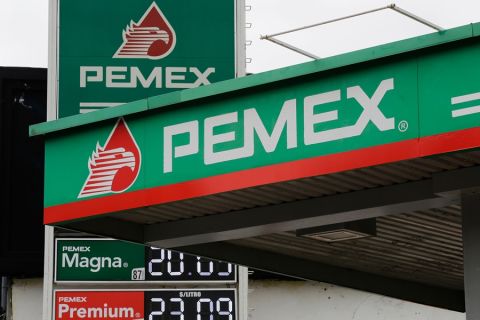The Net Zero Asset Owner Alliance (NZAOA) said on March 29 it expects members to make no new direct investments in upstream oil and gas infrastructure projects for new fields, as part of efforts to rein in global warming.
The group, whose members control $11 trillion in assets, said the requirements are its most stringent yet and reflect a scientific consensus that plans to transition the global economy away from fossil fuels must accelerate.
The requirements form part of a position paper laying out expectations for members, companies, investors and policymakers on everything from stewardship to carbon pricing, providing a roadmap for the global economy to wean itself off oil and gas.
The Alliance is also calling on companies in the oil and gas sector, as well companies that use the fuels, to set science-based targets to reduce their carbon emissions and to implement transition plans, as the world strives to limit global warming to no more than 1.5 degrees Celsius above pre-industrial levels.
The targets should cover not only a company's direct emissions, such as a diesel generator on an offshore platform, but also those related to its own energy use and those related to its customers' use of its products.
Despite that, climate-focused non-profit organizations including Reclaim Finance, Global Optimism and WWF said the guidelines were not ambitious enough.
"This position should have gone further in explicitly setting expectations for companies that are as clear as the expectations for investors... no investment in new oil and gas fields or other carbon-intensive infrastructure," said Christiana Figueres, founding partner of Global Optimism and a strategic advisor to the Alliance.
Reclaim Finance said there was no room for investment in new oil and gas fields in a 1.5 degree scenario and called the proposal "a giant leap backward".
The world's top oil and gas companies have so far set varying targets to reduce greenhouse gas emissions from their operations and the use of the products they sell.
"What the paper is really doing is not placing the blame on one stakeholder but pointing to the whole ecosystem and all the actors that need to be moving in parallel in order to raise ambition and get us on track for 1.5 degrees," said Patrick Peura, ESG engagement manager, Allianz Investment Management and co-lead of the Alliance engagement track.
Recommended Reading
US Orders Most Companies to Wind Down Operations in Venezuela by May
2024-04-17 - The U.S. Office of Foreign Assets Control issued a new license related to Venezuela that gives companies until the end of May to wind down operations following a lack of progress on national elections.
EU Expected to Sue Germany Over Gas Tariff, Sources Say
2024-04-17 - The German tariff is a legacy of the European energy crisis that peaked in 2022 after Moscow slashed gas flows to Europe and an undersea explosion shut down the Nord Stream pipeline.
Pemex to Remain Fiscally Challenged for Mexico’s Next President
2024-04-16 - S&P Global Ratings said Pemex will remain a fiscal challenge for the country’s next president, adding that continued cautious macroeconomic management was key in its ratings on both Mexico and Pemex.
Yellen Expects Further Sanctions on Iran, Oil Exports Possible Target
2024-04-16 - U.S. Treasury Secretary Janet Yellen intends to hit Iran with new sanctions in coming days due to its unprecedented attack on Israel.


